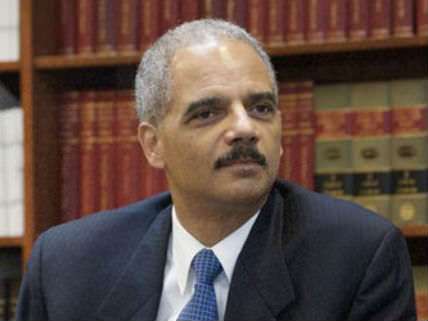Despite Holder's Forfeiture Reform, Cops Still Have a License To Steal
How the press exaggerated the attorney general's policy shift

Last week Attorney General Eric Holder announced a policy change that has been widely misinterpreted as dramatically reducing, or even eliminating, the police practice of confiscating property without accusing its owner of a crime. In my latest Forbes column, I explain what Holder actually did and how the press got it wrong. Here is how the column starts:
Contrary to what you may have read recently, Attorney General Eric Holder did not put an end to civil forfeiture, a form of legalized theft in which the government takes property allegedly linked to crime without even charging the owner, let alone convicting him. Nor did Holder stop civil forfeiture by the federal government or by the Justice Department. He did not even eliminate the Justice Department's Equitable Sharing Program, which lets police dodge state limits on forfeiture. Instead Holder restricted part of that program: "adoption," where a state or local law enforcement agency seizes an asset and then asks the Justice Department to pursue forfeiture under federal law. Holder's reform was a step in the right direction, but not nearly as big a step as much of the press coverage implied.


Show Comments (14)